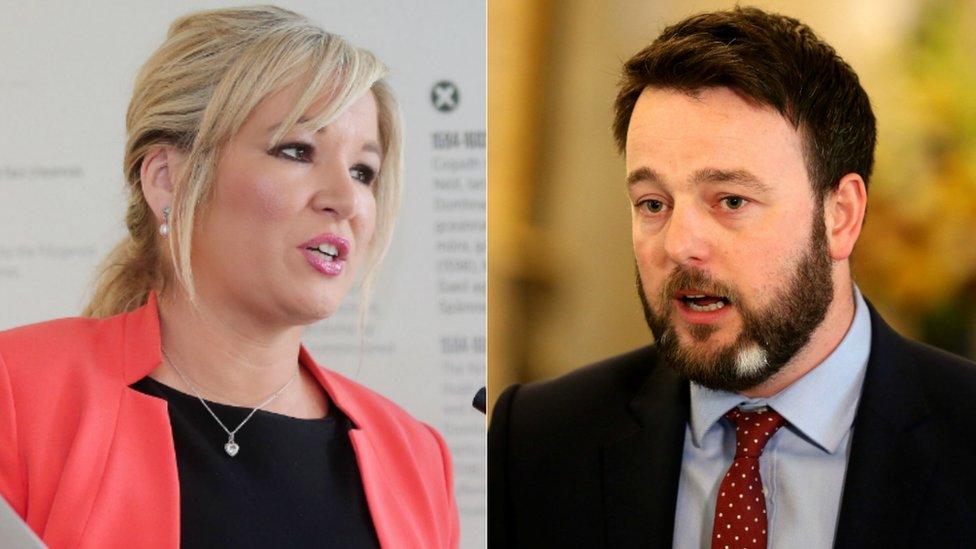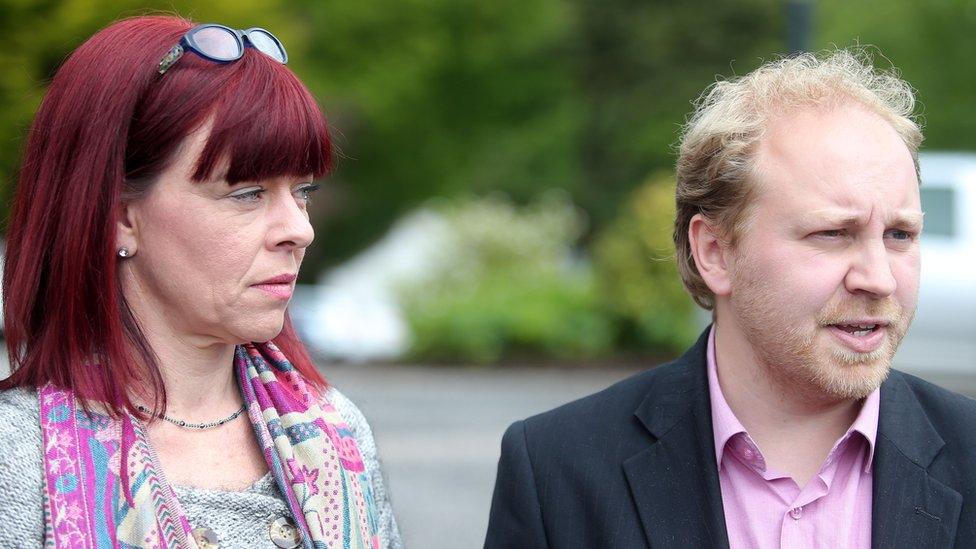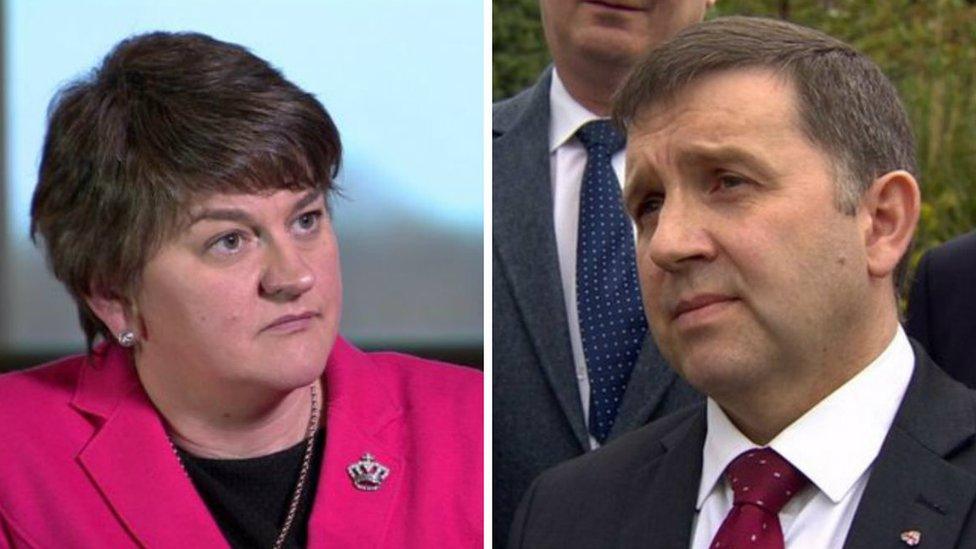General election 2017: 'Anti-Brexit' pact chances slim, says SDLP
- Published

Sinn Féin and the SDLP met on Tuesday to discuss a possible election pact
Chances of a general election pact being formed between Northern Ireland parties opposed to Brexit are "very slim", the SDLP leader has said.
Colum Eastwood was speaking after Green Party leader Steven Agnew said he would not unite with the SDLP, Sinn Féin or Ulster Unionists ahead of June's poll.
The SDLP and Sinn Féin held discussions on Tuesday about the prospect of striking a deal on standing candidates.
Sinn Féin said it is committed to "maximising the anti-Brexit vote".
Michelle O'Neill, the party's Stormont leader, said that the failure of Brexit-opposing parties to agree a "progressive alliance" in some constituencies ahead of the election would "almost certainly gift" seats to "pro-Brexit hardliners".
"I would urge those parties to reconsider," she added.
'No sectarian pacts'
The Democratic Unionist Party (DUP) has identified South Belfast as one constituency where unionists could gain a seat from nationalists by agreeing to stand a single unionist unity candidate.
The DUP and the Ulster Unionists met on Monday to discuss a possible pact for the election.
Mr Eastwood said that his party would only make an agreement with Sinn Féin if independent candidates could not be found.
He said he would not back a candidate who would abstain from taking a seat in the House of Commons, and added that his party does "not do sectarian pacts".

Steven Agnew said party colleague Clare Bailey can "unify the electorate" in South Belfast
Mr Agnew said he met parties that had "taken a pro-Remain stance" in last year's EU referendum to discuss a possible deal ahead of June's poll.
But his Green Party members have concluded that they could not strike a deal with parties that do not share their "vision for a progressive society".
There is "too much distance" between those parties and his, Mr Agnew added.
'Refused to engage'
He said the SDLP's decision to select sitting MP Alasdair McDonnell as its South Belfast candidate for the snap election "put to an end any chance of an agreed candidate".
He cited Sinn Féin's policy of not taking its seats in the House of Commons as another reason why his party would not enter a pact.
"It is impossible to oppose hard Brexit at every turn without taking seats in parliament," he said.
And he criticised Alliance Party leader Naomi Long, saying she "refused to engage" on the issue of a potential pact.
In a statement, the Alliance Party said Mr Agnew and his party had "belatedly recognised their own naivety in even considering pacts".
- Published24 April 2017
